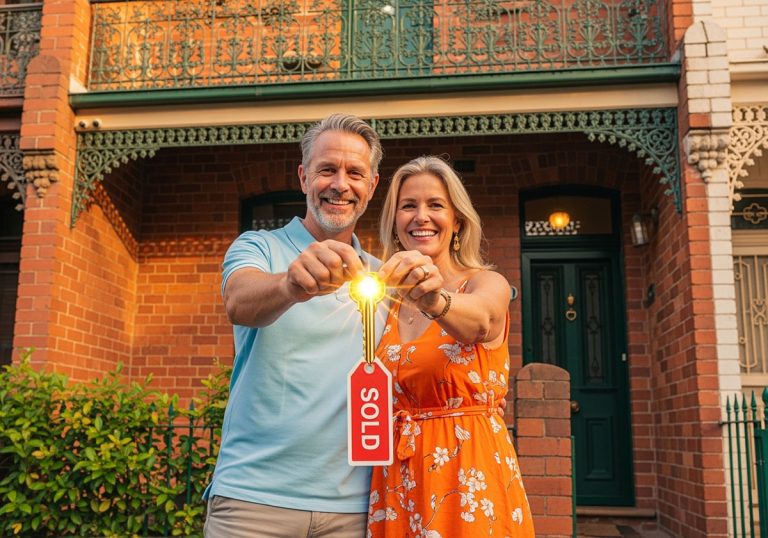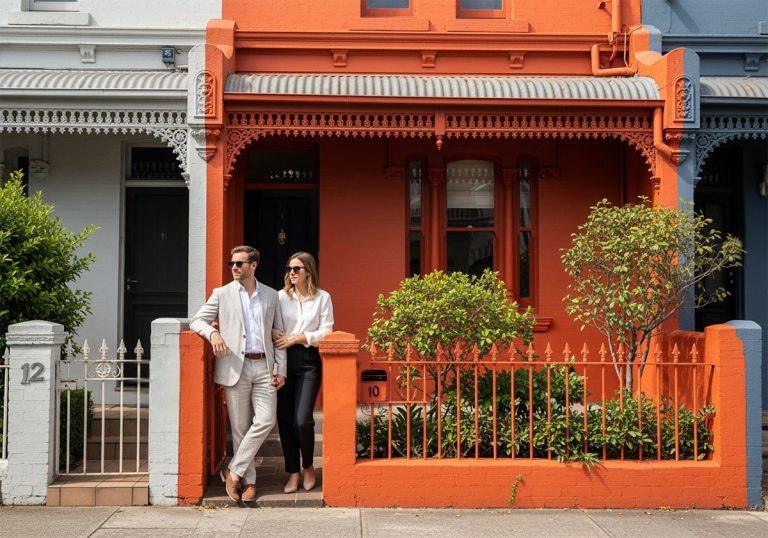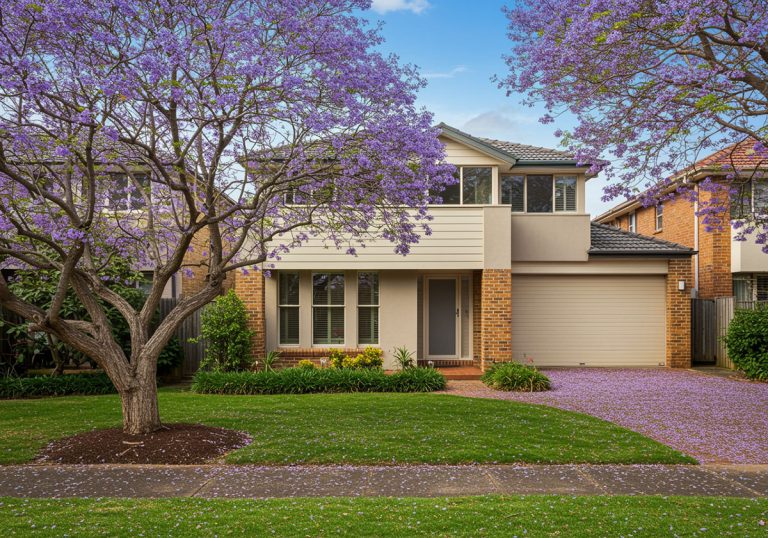The Sydney property market is one of the most dynamic and competitive real estate landscapes on the planet. For property buyers, understanding how to assess a property’s worth is a critical step in making informed decisions. Whether you are purchasing your first home or expanding your investment portfolio, knowing the true value of a property can save you from overpaying or missing out on valuable opportunities.
When you inspect a property on the open market, you will usually be given a price guide by the selling agent. However, this is invariably not the same as an “asking price” and is an indicative guide for marketing purposes only.
In this article, we delve into the factors that determine a property’s worth, explore different pricing methods, and provide insights into how buyers can accurately assess a property’s value.
As seasoned buyers’ agents operating in Sydney’s Inner West and beyond, we have prepared this comprehensive guide to explore the multi-faceted nature of property valuation so that buyers are equipped with strategies to more confidently assess value.
What Determines a Property’s Worth?
The simplistic answer is that a property is worth what someone is willing to pay for it. But how do buyers decide how much they are willing to pay?
A property’s worth is influenced by a combination of tangible and intangible factors. Understanding these elements is essential for evaluating how much a property is truly worth in the Sydney property market.
- Location
- Location remains one of the most significant determinants of property value. Proximity to amenities such as schools, public transport, parks, and shopping centres can significantly increase desirability and, consequently, price.
- In Sydney, properties closer to the CBD or with waterfront views often command premium prices due to their convenience and lifestyle appeal.
- A recent study by Luti Consulting found that properties within 400 metres of a train station command an average price premium of 4.5% compared to those more than 1.6 kilometres away.
- Property Size and Condition
- Larger properties with more land or living space generally attract higher valuations. Additionally, the condition of the property—whether it has been recently renovated or requires significant repairs—can heavily influence its market value.
- Features such as modern kitchens, updated bathrooms, or additional amenities like swimming pools can add substantial value.
- Market Supply and Demand
- The balance between supply and demand in the Sydney property market plays a pivotal role in pricing. Limited housing supply in high-demand suburbs often leads to competitive bidding wars that drive up prices.
- Economic Factors
- Broader economic conditions such as interest rates, inflation, and employment levels also impact property values. For instance, lower interest rates tend to increase buyer affordability, pushing up demand and prices.
- Zoning and Development Potential
- Properties with zoning for future development or those located near planned infrastructure projects may have higher valuations due to their potential for growth.
Understanding Different Pricing Methods
There are several methods used to estimate a property’s value. Each approach offers unique insights depending on the purpose of the valuation—whether it is for buying, selling, refinancing, or investment.
- Comparative Market Analysis (CMA)
- This method involves comparing the subject property with recently sold properties in the same area that share similar characteristics such as size, condition, and location.
- A CMA provides a market-based estimate reflecting what buyers are currently willing to pay for similar properties in Sydney’s real estate market.
Key steps include:
- Comp selection: Identifying 3-5 recent comparable sales (≤90 days) within 1km with ≤10% variance in land area and floor space.
- Adjustment matrix: Quantifying differences in the number of bedrooms or off street car spaces and adding or subtracting the corresponding rates from the assessment.
- Market trend adjustment: Applying temporal adjustments to older comparable sales.
- Professional Property Valuation
- Conducted by licensed valuers, professional valuations provide an unbiased assessment of a property’s market value based on detailed inspections and analysis of comparable sales data.
- This method is often required for legal purposes or when securing financing from lenders. Bank valuations are prepared for the bank to assess how much the lender can expect to recoup if they need to repossess and sell the property. For this reason, bank valuations tend to be conservative estimates.
- Automated Valuation Models (AVMs)
- AVMs, which are provided by companies like CoreLogic and RP Data, use advanced algorithms and large datasets to provide instant property valuations. These tools consider factors such as recent sales data, capital growth statistics, socio-economic trends, infrastructure developments, and environmental risks.
- While AVMs offer quick estimates, they may lack the nuanced understanding of local market conditions provided by human experts. They are also unable to assess the value of any recent improvements to the property.
- AVMs should not be considered a substitute for a professional valuation or even a thorough CMA by a professional such as a real estate or buyer’s agent.
- Income Capitalisation Approach
- Commonly used for investment properties, this method evaluates a property’s income-generating potential by analysing rental income against operating expenses and applying an appropriate capitalisation rate.
- Cost Approach
- This approach estimates the value of a property by calculating the land value combined with the cost to rebuild it from scratch while factoring in depreciation. It is particularly useful for newer or unique properties where comparable sales data may be limited.
How Buyers Can Assess a Property’s True Value
For property buyers navigating Sydney’s competitive market, determining a property’s true value requires diligence and strategic analysis.
- Conduct Thorough Research
- Begin by researching recent sales data for comparable properties in the area. Look at factors like size, condition, location, and unique features to establish a baseline price range.
- Online tools such as CoreLogic or RP Data can provide valuable insights into recent transactions.
- Engage Professionals
- Consider hiring buyers’ agents who specialise in the Sydney property market. Buyers’ agents bring local expertise and can conduct detailed analyses to help you identify fair market values while negotiating effectively on your behalf.
- Alternatively, engage a licensed valuer for an independent professional valuation if you require precise figures for legal or financial purposes.
- Evaluate Market Trends
- Stay informed about current market conditions such as interest rate changes or shifts in buyer demand. These trends can influence property prices significantly over short periods.
- Use Multiple Valuation Methods
- Combining methods like CMA with professional valuations or AVM tools can provide cross-verification of results and improve accuracy.
- For investment properties, consider using income-based approaches alongside traditional valuation techniques to account for rental yield potential.
- Inspect Properties Thoroughly
- Physical inspections are crucial for identifying structural issues or unique features that could impact valuation positively or negatively. Pay attention to details such as layout efficiency, natural lighting, and any required repairs. Similarly, the location of the property and its immediate surroundings will impact upon value.
- Avoid Overpaying Through Strategic Offers
- Once you have determined a property’s fair value range using reliable data sources and expert advice, set strict limits on your offer price to avoid emotional overspending during auctions or negotiations.
Conclusion
Determining how much a property is worth involves more than just looking at the selling agent’s price guide; it requires an understanding of various influencing factors and valuation methods tailored to specific needs. In Sydney’s ever-evolving property market, leveraging tools like CMAs, AVMs, and professional appraisals while consulting experienced buyers’ agents can empower you to make informed purchasing decisions.
At Buyer’s Domain in Leichhardt, we specialise in helping property buyers navigate these complexities with confidence. Whether you are seeking your dream home or expanding your investment portfolio in Sydney’s Inner West suburbs or beyond, our expertise ensures you secure properties at their true value without unnecessary stress.
For personalised assistance tailored to your needs within the Sydney property market, contact us today – your trusted partner in making smarter real estate decisions!



